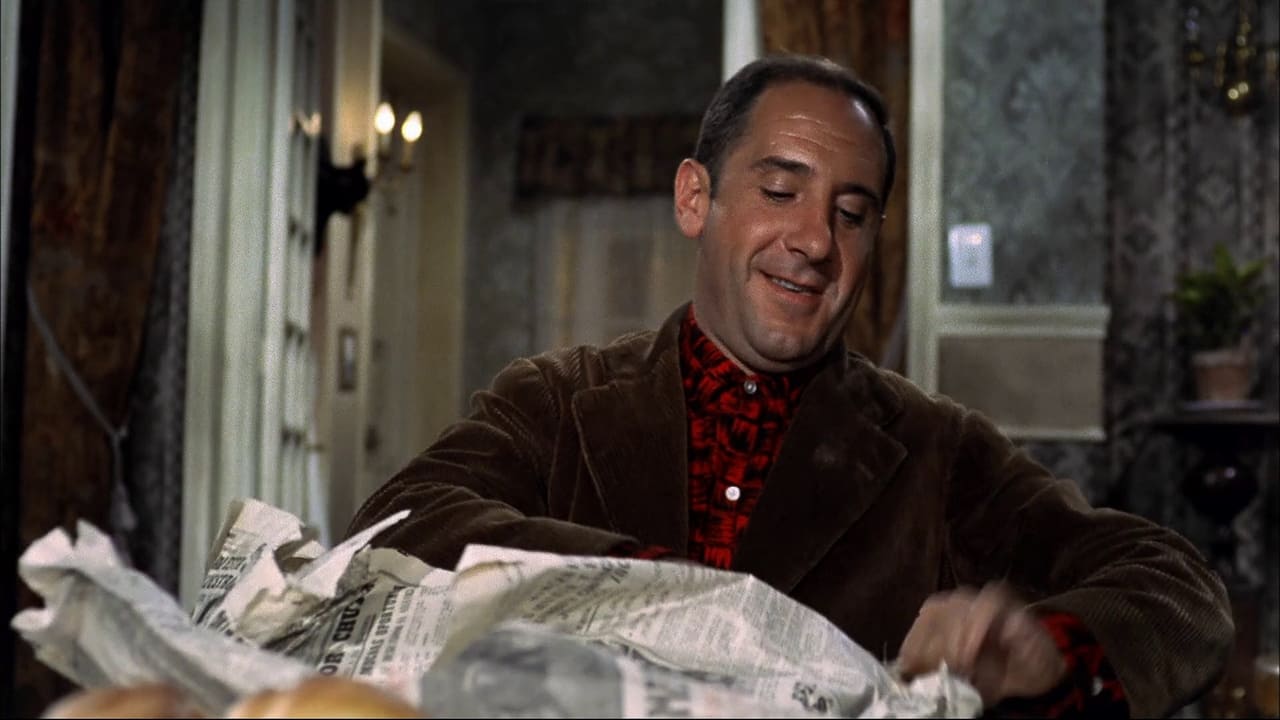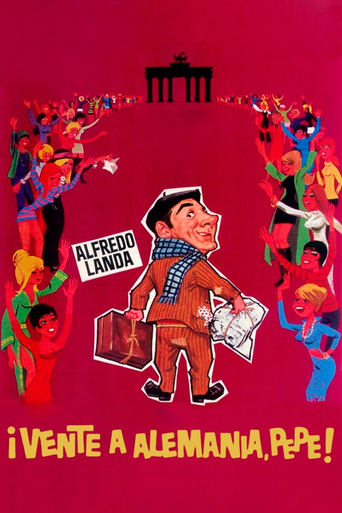

The movie plot concerns the lives of Spanish immigrants and hilariously showing us how was the existence of that time . At a village called Paralejos Arriba arrives Angelino (José Sacristán) from Munich , he drives a luxurious car , a ¨Mercedes¨ , and tells extraordinary feats about the German miracle and their wealthy lives . It excites to Pepe (Alfredo Landa) who decides to go Germany to seek fortune , in spite of the opposition his girlfriend Pilar (Tina Sainz) . One time in Múnich , Pepe gets lousy works and part-time jobs , as cleaning crystals (accomppanied by a German colleague nicely played by Manuel Summers) , and pasting posters . Pepe resides at a boarding house where is also Angelino , along with a exiled Republican doctor called Emilio (Antonio Ferrandis) and the loving couple formed by Maria (Gemma Cuervo) and Miguel (Fernando Guillén Cuervo) . Both of whom wish yearning to save enough money to return Spain to buy a gas station . One day , Pilar arrives in Múnich and surprising discovers Pepe working almost naked as an advertisement man and things go wrong .The flick packs silly incidents , funny comical sketches , tongue-in-cheek , grotesque situations and above all , it especially contains catching touches of humor and irony . Sitting in a strange middle ground between the completely absurd and the stylishly agreeable . There are some nice jokes in the film and the cast , playing eccentric characters , make a cosy fit . Being well set by that time , during the sixties when the Spanish people emigrated at European countries to survive . This hilarious as well as interesting film is full of humor , brief drama , touching scenes , good feeling and narrating the conflict between the traditional Spanish society and modernity . It is a simple , and humorous portrait of a time when the Spanish had to go other countries in order to encounter jobs . ¨Vente a Alemania Pepe¨ was a success among spectators , considered to be an acceptable , commercial and funny Spanish comedy . Its nostalgic look has some great moments that reflect a Spain of the sixties and seventies : a poor country during the years when the action takes place . It is full of typical Spanish topics , a simple plot and including atmospheric sets of a boarding house that seems more a Spanish Pension than a German place . The flick is a comical as well briefly dramatic homage to those people from the sixties and seventies that went to make a new life , leaving family and relatives as well as friends behind . As they find it almost impossible to adapt themselves to habits , language and an atmosphere in the modern country that seems alien to them now . There takes place the problems to adapt into Germany . Alfredo Landa gives a very nice acting as the dreamer Pepe who decides to attempt his luck traveling to Germany , to carry out the "German Dream¨ . The screenplay by notorious writers Vicente Coello and Vicente Escribá pays a loving tribute to those men who emigrated to seek fortune and sacrificed it all in order to help their impoverished families . The players are simply perfect, the tale flows at the alright pace , and you enjoy the picture from beginning to end . Colorful cinematography by Raúl Pérez Cubero who shows splendidly the ambient by that time . Evocative as well as atmospheric soundtrack by Antón Garcia Abril . The motion picture was professionally directed by Pedro Lazaga , though it has some flaws and gaps . Lazaga was a Spanish craftsman who directed various film with the popular comic player Paco Martinez Soria . Pedro was a prolific director and writer, known for Los Chicos Del Preu (1967), Cuerda De Presos (1956) and María Morena (1951). He directed all kind of genres such as Peplum : Siete Espartanos , Wartime : Cuerda De Presos , Posicion Avanzada , Torrepartida , La Patrulla ; Drama : Rostro De Asesino , Otro Arbol De Guernica , but especially known for comedies in low budget . Director Pedro Lazaga made , during the fifties and early sixties , eight films , mostly comedies : ¨Muchachas De Azul¨, Ana Dice Si¨. ¨Luna De Verano¨, ¨Económicamente Debiles¨ , ¨Trio Damas¨ for screenwriter and producer Jose Luis Dibildos and his ¨Agata Films Productions¨. The best of all them results to be ¨Los Tramposos¨. He continued making comedies such as Patrulla De Los Once , Los Tramposos , Sabian Demasiado , El Vikingo , ¡No Firmes Más Letras, Cielo! , Vente a Ligar Al Oeste , Hasta El Matrimonio Nos Separe , La Amante Perfecta , Fulanita y Sus Menganos , among others . His most known films were with the popular comic player Paco Martinez Soria such as : Abuelo Made in Spain , Padre De La Criatura , Alegre Divorciado , Estoy Hecho Un Chaval , Vaya Par Gemelos , among others . As well as others produced by Vicente Escriba and starred by Alfredo Landa, such as : Vente a Alemania Pepe , Vente a Ligar a Oeste and No Firmes Mas Letras Cielo .
... View More"Cinema of the neighborhood" (Cine de barrio in Spanish) is a self produced TV program of the Spanish public broadcasting corporation. It consists of broadcasting movies of the typical Spanish cinema of the 50's, 60's and early 70's... that frequently means the worst Spanish movies. This one is a great example of the so called "Landism" (Landismo in Spanish) which was those movies with showed a peculiar idea of cinema and very characteristic for almost always the same actors and actresses (Alfredo Landa, who gives his name to the Landism, Paco Martínez Soria, Lina Morgan, Manolo Garisa, Manolo Escobar, Mónica Randal, Manolo Gómez Bur, ...), similar arguments, long women's legs, and a Spanish nerd or redneck man among others."Vente a Alemania, Pepe" (Come to Germany, Pepe) anyway could be seen as a sociological movie about the emigration to Germany during the 60's: the promised paradise (not so paradise at last), the difficulties to get accustomed to a new country, the melancholy of the emigrants about their country... and, of course, the hard censorship that flows all over the movie... don't forget we're in 1971, still the hard days of repression during the last years of the dictatorship of General Franco. The movie pretends to show us Antonio Ferrandis (the character of a medical doctor) , who is supposed to be an exiled for political reasons, maybe for being socialist or communist or just a defender of freedom during the war, and show him as a bitter and bitterer man who doesn't worth any opportunity for a new life, for a new hope of free thinking, free acting or free behavior beyond the "law" of the dictatorship.
... View More